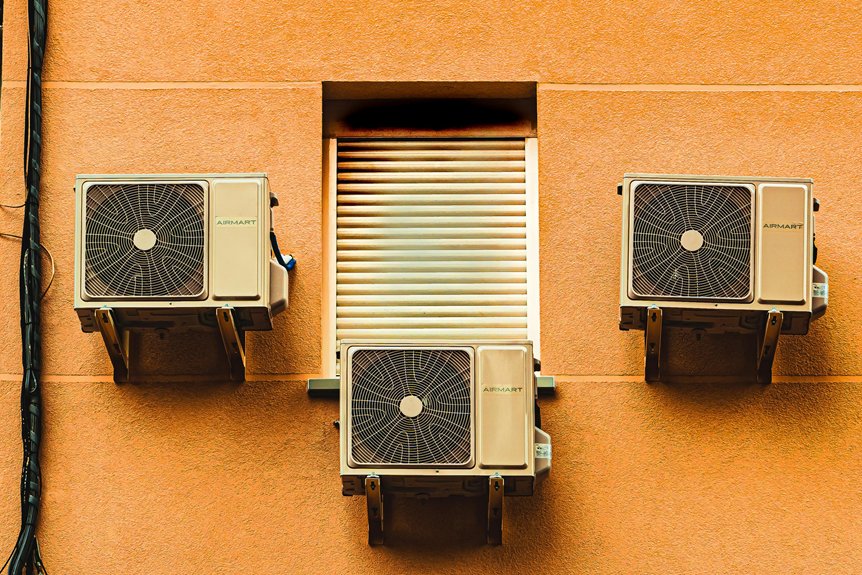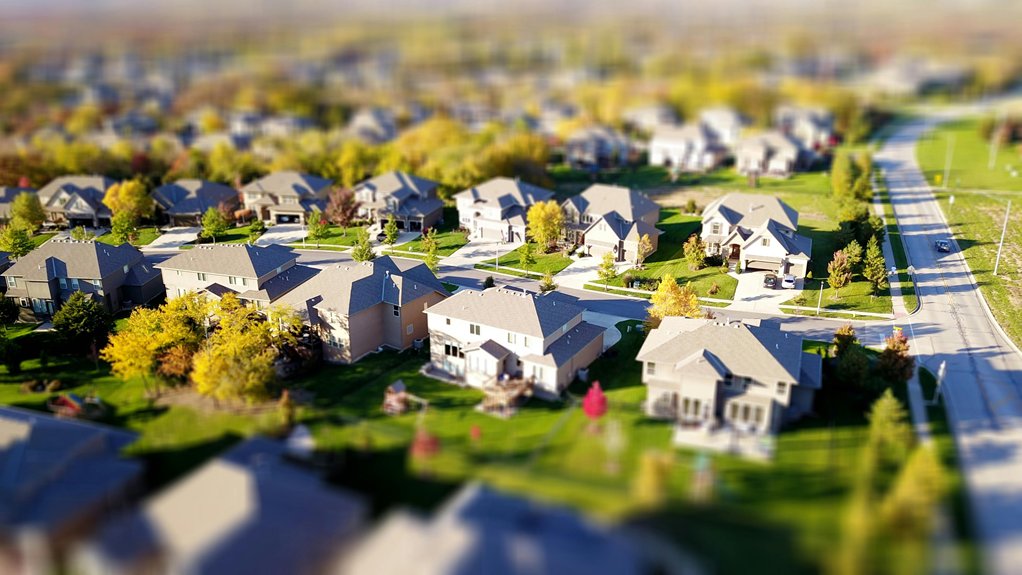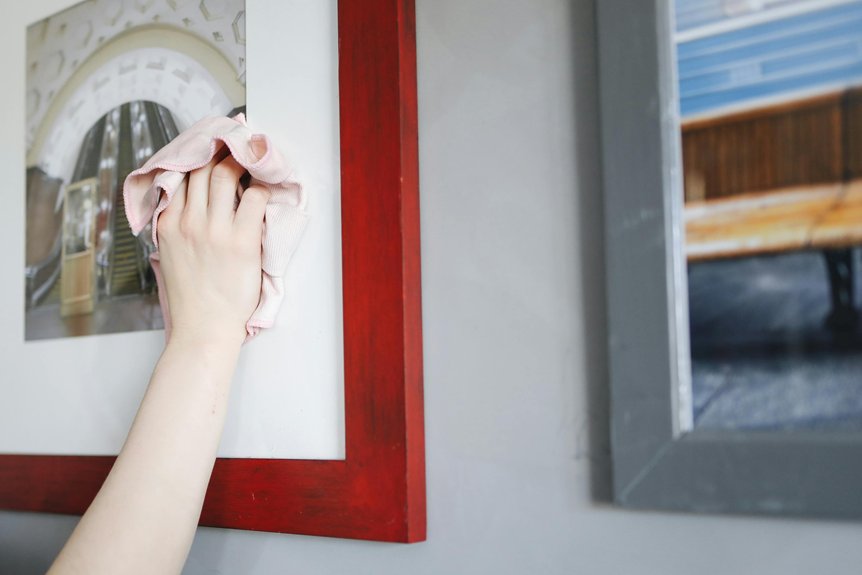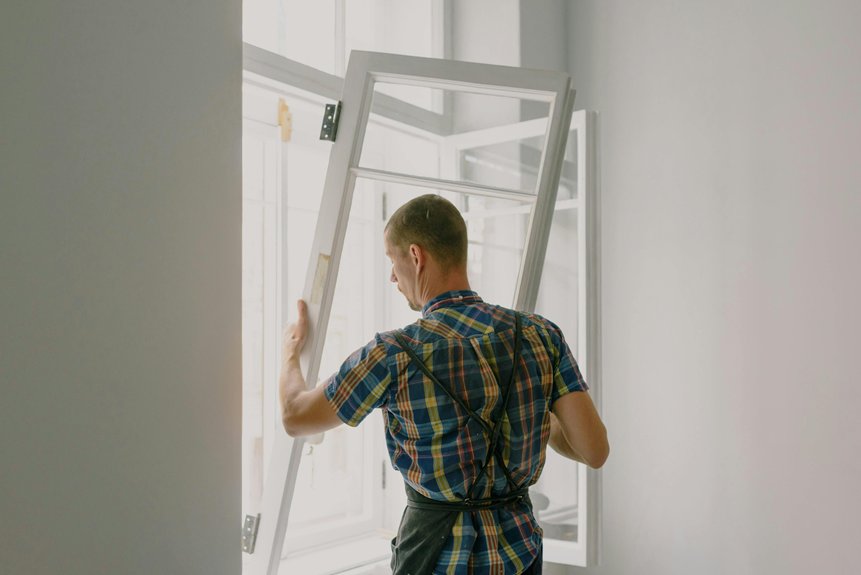Upgrading to energy-efficient windows can lead to real savings on your energy bills. Homeowners often report reductions of up to 25% after installing high-performance windows. These windows improve insulation, reduce air leakage, and ultimately address energy loss. Choosing the right materials, like vinyl or fiberglass, can further enhance efficiency. If you consider all the benefits and specifics that come with window replacement, you’ll see how these upgrades can greatly impact your finances and comfort.
Key Takeaways
- Homeowners typically experience up to a 25% reduction in energy bills after replacing old windows with energy-efficient models.
- New windows improve insulation and reduce drafts, enhancing overall comfort and reducing energy costs significantly.
- Financial incentives may be available to offset initial costs, making window upgrades more financially appealing.
- High-performance windows minimize air leakage, directly contributing to long-term savings on heating and cooling expenses.
- Real-life case studies show families enjoying substantial energy savings after investing in modern, energy-efficient window installations.
Understanding Energy Efficiency Ratings
How can you guarantee your new windows will provide the energy savings you expect? Understanding energy efficiency ratings is essential.
These ratings, established by various rating systems like NFRC (National Fenestration Rating Council), help you compare window performance.
Look for the U-factor, which measures heat transfer—lower values indicate better insulation. The Solar Heat Gain Coefficient (SHGC) tells you how much solar heat enters your home; a lower SHGC is ideal for hot climates.
Additionally, consider the Visible Transmittance (VT) rating, which measures natural light entry. By selecting windows with high energy efficiency ratings, you’re making an informed choice that not only enhances comfort but also reduces energy costs. Many uPVC casement windows offer advanced glazing technology for optimal energy efficiency and soundproofing.
The Impact of Window Replacement on Energy Bills
Replacing your windows can greatly impact your energy bills, especially if your old windows are drafty or poorly insulated. By investing in high-performance windows, you enhance window performance, reducing air leakage and improving insulation. This upgrade can lead to significant savings on heating and cooling costs.
Energy audits often reveal that inefficient windows are a major contributor to energy loss in homes. When you replace them, you not only increase comfort but also lower your monthly energy expenses.
Consider that many homeowners report up to a 25% reduction in energy bills after replacing their windows. It’s a smart investment that pays off over time, making your home more efficient and your energy bills more manageable. Additionally, installing superior security and thermal efficiency through modern window solutions can further enhance your overall energy savings.
Homeowner Case Study: A Family’s Experience
Many homeowners have experienced the benefits of window replacement firsthand, and one family’s journey highlights the positive impact this upgrade can have.
After a thorough window installation process, they noticed a significant drop in their energy bills, which was essential for staying within their family budget. The new windows not only improved insulation but also reduced drafts, making their home more comfortable year-round.
They were initially hesitant about the investment, but the long-term savings quickly outweighed the upfront costs. By choosing energy-efficient windows, they not only enhanced their living space but also contributed to a greener environment. This family opted for super energy-efficient A-rated windows, which further maximized their energy savings.
This case illustrates that window replacement isn’t just an expense—it’s a smart financial decision that pays off over time.
Comparing Different Window Materials
When choosing new windows, the material plays an essential role in both performance and aesthetics.
Vinyl vs aluminum windows offer distinct advantages; vinyl is usually more energy-efficient and requires less maintenance, while aluminum provides a sleek, modern look and durability.
If you’re considering fiberglass vs wood, fiberglass stands out for its longevity and resistance to warping, whereas wood offers natural beauty but demands regular upkeep.
Ultimately, your choice depends on your priorities—whether you value low maintenance, energy efficiency, or aesthetic appeal.
By weighing these factors, you’ll make a more informed decision that enhances your home’s energy savings and visual appeal.
Investing in the right window material now can lead to significant long-term benefits, especially when considering energy-efficient designs that can help reduce heating costs.
The Role of Insulation in Energy Savings
While you might focus on the windows themselves, the insulation around them often plays an essential role in maximizing energy savings. Proper insulation can prevent air leaks, maintaining a consistent indoor temperature.
When evaluating insulation types, consider options like fiberglass, foam, or cellulose, each offering unique benefits. For instance, spray foam insulation can create an effective seal, while fiberglass batts are often cost-efficient.
Choosing the right insulation materials can markedly enhance your windows’ performance, reducing heating and cooling costs. In addition, good insulation complements your window choice, ensuring you reap the full benefits of energy efficiency.
Don’t overlook this important element; investing in quality insulation can yield substantial long-term savings and improve your home’s comfort.
Aesthetic Benefits of New Windows
Although energy efficiency is a significant consideration, the aesthetic benefits of new windows can dramatically enhance your home’s curb appeal and interior look.
You’ll appreciate how new windows offer not just functionality, but also a fresh design that elevates your living space.
Here are three key aesthetic benefits:
- Aesthetic Appeal: New windows can transform your home’s exterior, creating a modern and inviting appearance.
- Design Variety: With numerous styles, colors, and materials available, you can customize windows to match your unique design preferences.
- Natural Light: Larger or strategically placed windows can flood your interiors with natural light, making spaces feel larger and more welcoming.
Additionally, bay and bow windows provide a harmonious blend of functionality and elegance, enhancing both aesthetics and energy efficiency.
Investing in new windows is a smart move for both energy savings and enhancing your home’s overall look.
Environmental Benefits of Upgrading Windows
Upgrading your windows not only boosts your home’s aesthetic appeal but also brings significant environmental benefits.
Energy-efficient windows reduce your energy consumption, which directly lowers your carbon footprint. By minimizing the need for heating and cooling, you’re not just cutting costs; you’re also contributing to a larger sustainability impact. Each time you reduce your energy use, you’re helping to conserve natural resources and decrease greenhouse gas emissions.
Furthermore, many modern windows are designed with sustainable materials, further enhancing their eco-friendly credentials. Choosing to upgrade means you’re making a responsible choice for the planet while enjoying a more comfortable living environment. Additionally, investing in high-quality double and triple glazed windows can significantly improve thermal efficiency.
In short, investing in new windows is a smart step toward a greener future.
Long-Term Financial Gains From Energy-Efficient Windows
Investing in energy-efficient windows can yield substantial long-term financial gains, especially when you consider the savings on your energy bills.
Not only do these windows enhance comfort, but they also offer attractive financial incentives. Here are three key benefits:
- Reduced Energy Costs: You’ll notice lower monthly utility bills, leading to immediate savings.
- Increased Home Value: Energy-efficient windows can boost your property’s resale value, providing a strong return on investment.
- Tax Breaks and Rebates: Many homeowners qualify for financial incentives that further offset the initial cost, making the investment even more appealing.
In the long run, these factors contribute to a healthier financial landscape for you, ensuring that your investment pays off considerably over time. Additionally, installing thermally efficient roofs can further enhance your home’s energy performance and savings.
Factors to Consider Before Replacing Windows
When considering the benefits of energy-efficient windows, it’s important to evaluate several factors before making a replacement.
First, think about the different window styles available. Each style impacts not just aesthetics but also energy efficiency and functionality. You’ll need to decide what works best for your home’s design and climate.
Next, consider installation costs. Quality windows can be a significant investment, and you should factor in the cost of professional installation versus DIY options.
Don’t forget to check for any available incentives or rebates that could offset these costs. Additionally, tilt and turn windows offer innovative operation and thermal efficiency, making them a strong contender for energy-efficient upgrades.
How to Choose the Right Windows for Your Home
Choosing the right windows for your home can greatly impact your energy efficiency and overall comfort, so it’s essential to weigh your options carefully.
Start by evaluating your needs and how different window styles can affect your energy costs. Here are three key factors to take into account:
- Material: Opt for energy-efficient materials like vinyl or fiberglass, which offer better insulation compared to wood or aluminum.
- Glazing: Look for double or triple-glazed windows that help minimize heat transfer and lower energy costs.
- Orientation: Reflect on the direction your windows face; strategically placed windows can enhance natural light and reduce reliance on artificial lighting. Additionally, consider installing uPVC windows recognized for their thermal efficiency to further improve energy savings.
Conclusion
Upgrading your windows isn’t just a cosmetic change; it’s like wrapping your home in a cozy blanket that keeps the chill out and the warmth in. As you watch your energy bills shrink, you’ll feel a sense of relief knowing you’re making a smart investment. With the right windows, you’re not only enhancing your comfort but also contributing to a greener planet. So, take the plunge and embrace the long-term savings and benefits that come with energy-efficient windows.















